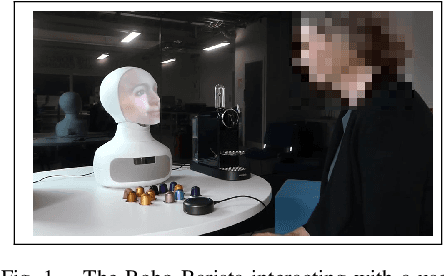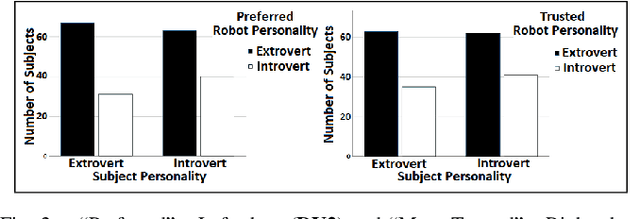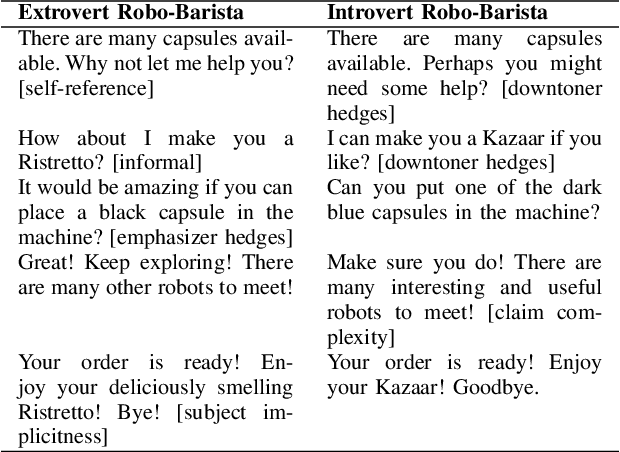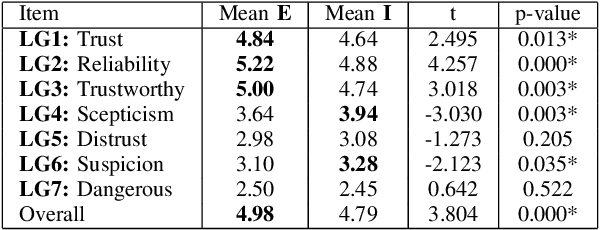Mei Yii Lim
Feeding the Coffee Habit: A Longitudinal Study of a Robo-Barista
Sep 06, 2023Abstract:Studying Human-Robot Interaction over time can provide insights into what really happens when a robot becomes part of people's everyday lives. "In the Wild" studies inform the design of social robots, such as for the service industry, to enable them to remain engaging and useful beyond the novelty effect and initial adoption. This paper presents an "In the Wild" experiment where we explored the evolution of interaction between users and a Robo-Barista. We show that perceived trust and prior attitudes are both important factors associated with the usefulness, adaptability and likeability of the Robo-Barista. A combination of interaction features and user attributes are used to predict user satisfaction. Qualitative insights illuminated users' Robo-Barista experience and contribute to a number of lessons learned for future long-term studies.
We are all Individuals: The Role of Robot Personality and Human Traits in Trustworthy Interaction
Jul 28, 2023



Abstract:As robots take on roles in our society, it is important that their appearance, behaviour and personality are appropriate for the job they are given and are perceived favourably by the people with whom they interact. Here, we provide an extensive quantitative and qualitative study exploring robot personality but, importantly, with respect to individual human traits. Firstly, we show that we can accurately portray personality in a social robot, in terms of extroversion-introversion using vocal cues and linguistic features. Secondly, through garnering preferences and trust ratings for these different robot personalities, we establish that, for a Robo-Barista, an extrovert robot is preferred and trusted more than an introvert robot, regardless of the subject's own personality. Thirdly, we find that individual attitudes and predispositions towards robots do impact trust in the Robo-Baristas, and are therefore important considerations in addition to robot personality, roles and interaction context when designing any human-robot interaction study.
* 8 pages, RO-MAN'22, 31st IEEE International Conference on Robot and Human Interactive Communication (RO-MAN), August 2022, Naples, Italy
 Add to Chrome
Add to Chrome Add to Firefox
Add to Firefox Add to Edge
Add to Edge